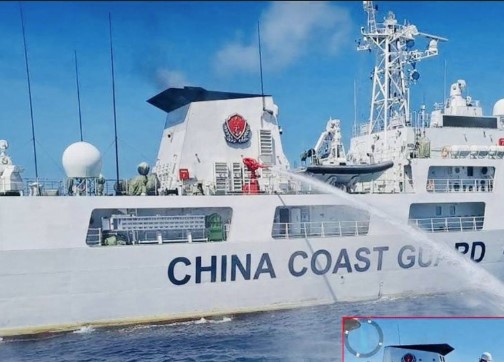China’s Military Exercises Raise Alarms
China has announced a four-day live-fire military exercise in the Gulf of Tonkin, warning ships to stay away from the designated zone. The drills, which will involve real ammunition, began on Monday and will continue until Thursday. This move has drawn attention because of its timing, which coincides with Vietnam’s formal declaration of a new baseline to mark its maritime territory in the Gulf of Tonkin.
The Gulf of Tonkin, a critical body of water shared by China and Vietnam, has long been a focal point of maritime disputes. Both nations have competing claims over parts of the gulf, and tensions have escalated over the years due to conflicting territorial assertions. The latest development adds another layer of complexity to the already delicate situation.
Vietnam’s new baseline declaration and China’s military exercises are seen by analysts as connected, even though neither side has directly acknowledged a link. The drills demonstrate China’s military presence in the region, while Vietnam’s move strengthens its legal claim over its waters. The overlapping actions have raised concerns about growing friction in the Gulf of Tonkin, which is vital for trade, fishing, and security in the region.
Vietnam Establishes New Maritime Boundary in the Gulf of Tonkin
Vietnam’s government has officially defined its baseline in the Gulf of Tonkin, marking the starting point for measuring its territorial waters and exclusive economic zone. This declaration follows the guidelines set by the United Nations Convention on the Law of the Sea (UNCLOS), an international treaty that regulates maritime boundaries.
A baseline is an imaginary line drawn along a country’s coast, helping determine the extent of its maritime territory. Any waters within this line are considered internal, while areas beyond it may fall under exclusive economic zones or international waters. The Gulf of Tonkin, which borders northern Vietnam and southern China, has been a contested area where both nations have sought to assert their rights.
Vietnam’s foreign ministry stated that the establishment of this baseline was necessary to protect the country’s sovereignty and ensure that its maritime rights are legally recognized. Officials also highlighted that Vietnam’s baseline strictly follows UNCLOS regulations, unlike China’s controversial claim in the same region.
In March 2024, China announced its own baseline for the northern part of the Gulf of Tonkin. Analysts have described China’s claim as excessive, pointing out that in some areas, it extends nearly 50 nautical miles (93 kilometers) into international waters. This expansion raises concerns that China may attempt to extend its maritime control beyond what is legally permitted under UNCLOS.
The United States has criticized China’s baseline declaration, arguing that it could be used as a justification to restrict the movement of foreign ships. The U.S. military has warned that China may seek to control access to key maritime routes, including the Hainan Strait, a vital passage for international trade and military operations. Washington has reaffirmed its commitment to ensuring freedom of navigation in the Gulf of Tonkin and surrounding waters.
Rising Tensions in the Gulf of Tonkin
China has not yet issued an official response to Vietnam’s baseline declaration, but some maritime analysts believe that the ongoing military exercises in the Gulf of Tonkin are a direct reaction to it. The live-fire drills are taking place northwest of Hainan Island, outside Vietnam’s territorial waters, but their timing suggests a show of force.
China’s military activities in disputed maritime zones are often seen as strategic signals. The current exercise in the Gulf of Tonkin follows a pattern of Chinese military operations that coincide with political and legal developments in contested areas. The proximity of the drills to Vietnam’s announcement raises concerns about China’s intentions in the region.
Vietnam and China previously signed a Delimitation Agreement in 2000 to divide the Gulf of Tonkin between them. However, a separate joint fishery cooperation agreement expired in 2020 and has yet to be renegotiated. Without a renewed agreement, fishing rights and maritime activities in the Gulf of Tonkin remain unresolved, adding another point of tension between the two nations.
The Gulf of Tonkin is not only significant for China and Vietnam but also holds broader geopolitical importance. It serves as a key maritime route for regional trade and fishing industries. Any disruption in the gulf, whether through military exercises or territorial disputes, has the potential to impact regional stability and economic activities.
As China continues its live-fire exercises and Vietnam stands firm on its legal claims, the Gulf of Tonkin remains a hotspot of maritime contention. The overlapping actions of both nations highlight the ongoing struggle for control over strategic waters, reinforcing the complex nature of territorial disputes in the region.

